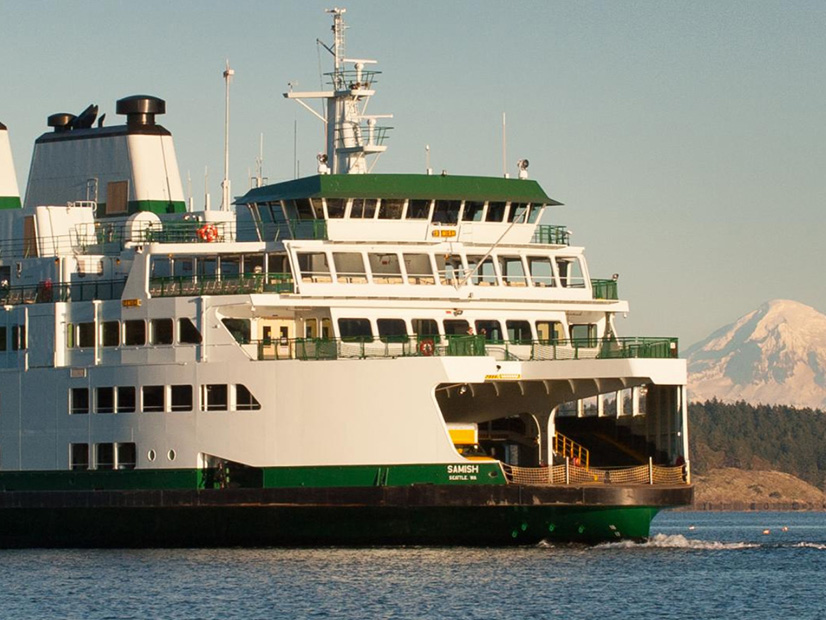
Washington State Ferries expects to start a multi-year contract to convert from solely diesel fuel engines to hybrid fuel-battery propulsion in October 2022.
The timing of the move depends on how fast the American Bureau of Shipping and U.S Coast Guard approve the redesigned propulsion system for the state’s three largest ferries, and on how long the bidding process and contract negations take.
Washington’s state ferry system — the largest in the U.S. — has 10 vessels that crisscross Puget Sound.
While Washington State Ferries won’t be the first government ferry system to convert to a hybrid fuel-battery operation, it will be the largest in both the size and number of boats. The first three vessels to be converted are the state’s largest, capable of holding 202 vehicles each. They handle two 8.6-mile routes between Seattle on the east side of the sound and Bainbridge Island on the west side, and a third five-mile route between Edmonds on the east side and Kingston on the west.
Entering service in 2019, the nation’s first government-run all-electric ferry can handle 15 cars and crosses the Alabama River between Gee’s Bend and Camden, Alabama.
The first government-owned diesel-electric hybrid ferry is expected to enter service in 2022. It will be able to carry 70 vehicles 2.7 miles between Galveston Island and the Bolivar Peninsula in Texas.
Hybrid fuel-electric ferries have been operating in Norway and northern Europe for years. Washington plans to use the same Siemens technology that Norway does.
“This is not cutting edge, high-risk technology,” Matt von Ruden, Washington State Ferries’ director of vessel engineering and maintenance, told NetZero Insider.
Washington’s move is part of a 2018 executive order by Gov. Jay Inslee to cut greenhouse gas emissions from the state ferries, von Ruden said. The state’s 10 ferries consume 19 million gallons of fuel annually. The state believes that this move will dramatically trim that figure.
When a contract is signed, the contractor will remove two of four diesel engines from each of the three largest ferries and replace the missing engines with batteries capable of storing 5.7 MWh of power. The boats will primarily use battery power, saving the diesel for when extra power is needed for backup purposes or swift maneuvering, von Ruden said. A converted ferry will operate with the same power and speed running on batteries as it currently does with diesel engines.
When a boat is docked to load and unload vehicles, the batteries will be hooked up to a shoreline charging station, which will replenish battery power in 18 minutes.
However, the construction of all the dockside charging stations is not expected to be complete until 2025. “It’s a complex process, and we want to get it right,” von Ruden said.
Removing two engines, doing extensive modifications to a room next to the engine room, and installing the batteries is expected to take five to six months at a cost of $35 million for a single boat, von Ruden said. So far, the state has lined up money to tackle only the three largest ferries. Funding must be found for the remaining seven 144-car ferries.
Washington will have to tackle one ferry at a time because it can only afford to take one vessel out of circulation at a time from its numerous Puget Sound ferry routes, he said. He hopes the first ferry will begin the conversion process in spring 2023 with the work done later that year.
After the first three ferries are converted, modifications on the remaining seven are expected to occur at a rate of one about every six months, if more money becomes available by then, von Ruden said.


